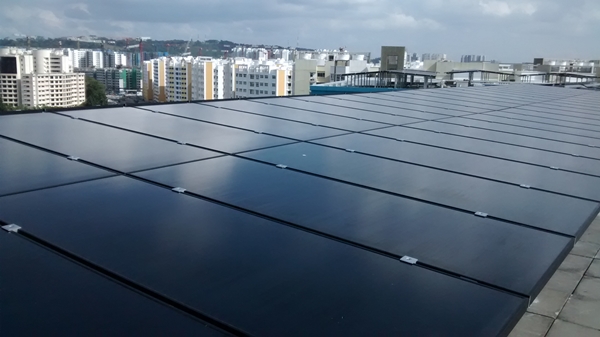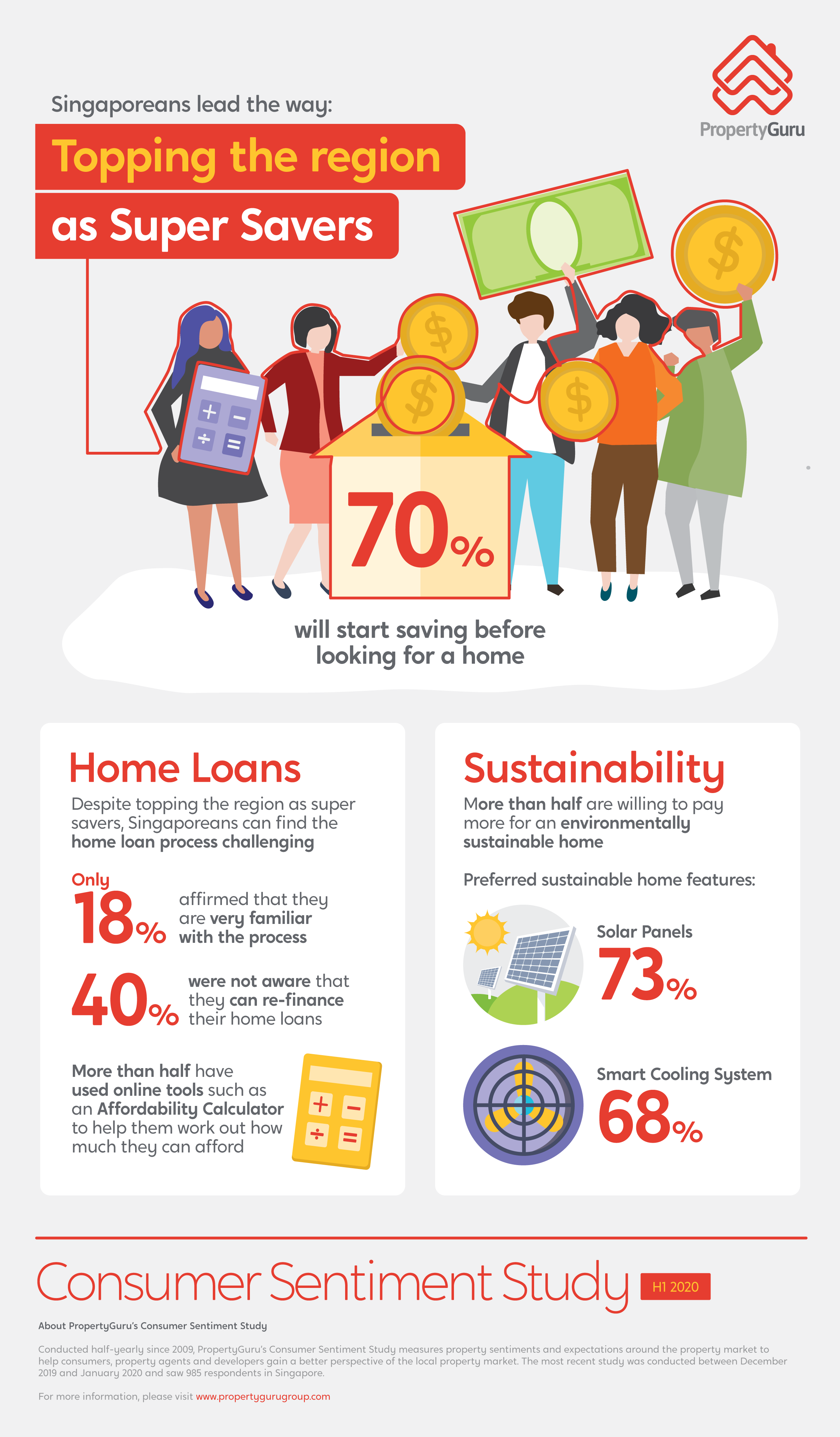58% of Singaporeans say they are willing to pay a premium for an environmentally sustainable home, according to the recent findings from the Consumer Sentiment Study H1 2020.
The study, which surveyed 985 people across different age groups and demographics, also found that Singaporeans are becoming increasingly aware of the pressing need to be environmentally conscious and sustainable across all areas of life, opening up to the idea of introducing eco-friendly features into their homes.
Moving towards sustainable homes

Among the various sustainable features, 73% considered solar panels as their top preferred sustainable feature. This seemed to be popular among high-income Singaporeans between the ages of 30 to 39 years old.
Another popular feature was smart cooling system, which 68% of respondents said was a key feature to have when buying a sustainable home.
As of December 2019, about 2,060 HDB blocks have had solar panels installed, while another 2,500 blocks or so in progress. As part of its larger clean energy drive, Singapore has pledged to increase its solar harvesting of solar energy to at least 2 gigawatt-peak (GWp) by 2030.
Other preferred features include water recycling systems (36%), pollution absorbing interiors (34%), and rainwater harvesting (33%). Interestingly. younger Singaporeans between the ages of 22 – 39 years old showed the highest interest in food waste composter.
Meanwhile, there is little overall interest in farming-related features such as indoor farming and rooftop gardening, as well as electric vehicle charging points.
Increased governmental Initiatives to support sustainable living
Following the release of Singapore Budget 2020, the Singapore government has unveiled plans to cope with climate change by setting up a coastal and flood protection fund, which will start off with an initial amount of $5 billion.
Sea levels are expected to rise dramatically in the next 80 years, which will inundate land home to 640 million people today — approaching 10% of the world’s population — by the end of the century. And due to Singapore’s low-lying topography, puts the city-state at risk of being submerged by water.
Similarly, the Budget 2020 also aims to encourage households to purchase energy-efficient household appliances by introducing incentives to help lower-income households with the cost of these appliances.
The government has also pledged to make sustainable living a key feature in HDB estates with the Green Towns Programme, which will see sustainable features introduced in HDB estates, including rainwater recycling and greenery integration.
Positive practices begin at home
The huge interest in sustainable practices shown in the survey coupled with the government’s initiatives in the budget further drives the point of making sustainable living a key feature of Singapore’s future.
Hopefully, with the new HDB Green Towns programme integrating sustainable features alongside increased awareness and desire to integrate such facilities, Singaporeans can look forward to more sustainable initiatives.

For more property news, content and resources, check out PropertyGuru’s guides section.
Looking for a new home? Head to PropertyGuru to browse the top properties for sale in Singapore.
Need help financing your latest property purchase? Let the mortgage experts at PropertyGuru Finance help you find the best deals.
Disclaimer: The information is provided for general information only. PropertyGuru Pte Ltd makes no representations or warranties in relation to the information, including but not limited to any representation or warranty as to the fitness for any particular purpose of the information to the fullest extent permitted by law. While every effort has been made to ensure that the information provided in this article is accurate, reliable, and complete as of the time of writing, the information provided in this article should not be relied upon to make any financial, investment, real estate or legal decisions. Additionally, the information should not substitute advice from a trained professional who can take into account your personal facts and circumstances, and we accept no liability if you use the information to form decisions.


